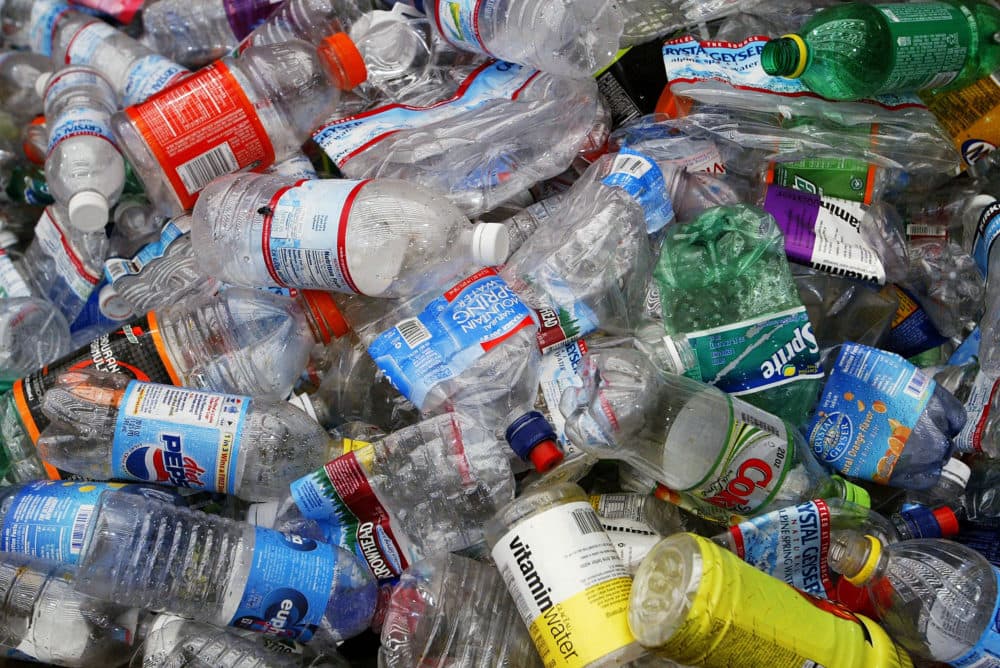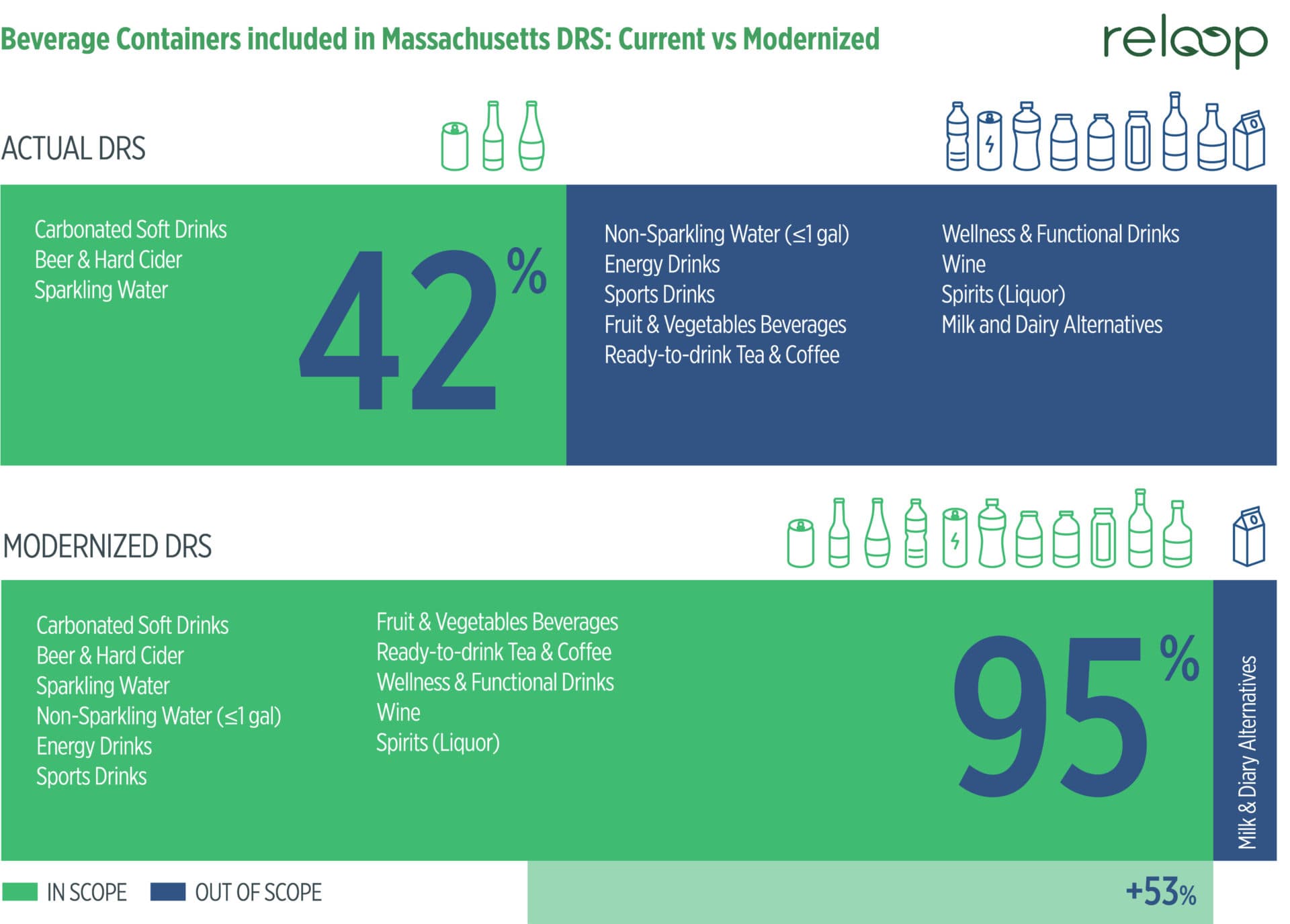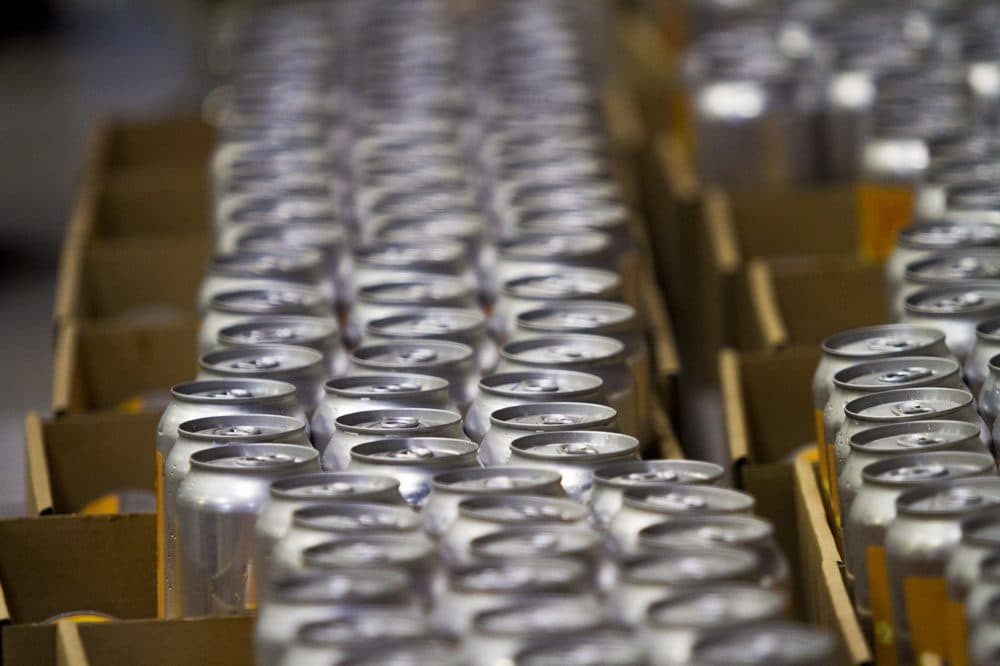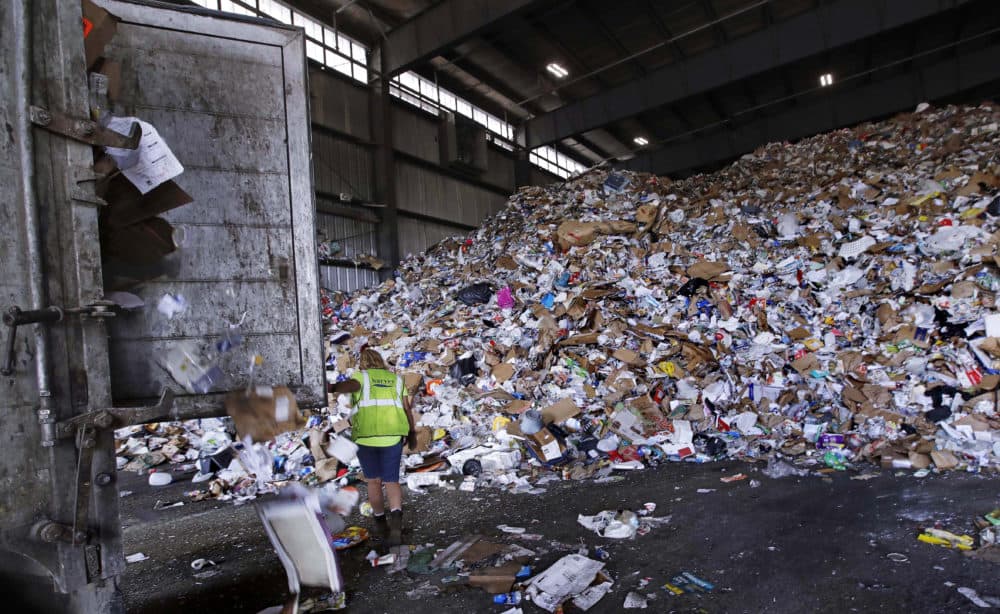Advertisement
Modernizing the bottle recycling program in Mass. would have big benefits, report finds

Massachusetts could cut down on plastic litter, create less garbage, reduce greenhouse gas emissions and save cities and towns millions of dollars every year by modernizing the way it recycles beverage containers, according to a new report by the nonprofit Reloop North America.
The report focuses on the so-called deposit return system (DRS) — the five cent deposit you pay when you buy a can of soda or beer, and then get back when you return it to a bottle redemption site.
We’ve known for decades that states with deposit return systems see higher bottle recycling rates, says Reloop director Elizabeth Balkan. “Likewise, when you look at states that do have a bottle bill and compare the containers that are covered by the program versus those that are not, the containers that are part of the program are recycled at a much higher rate.”
Deposit returns systems are not only an effective and cost-efficient way to incentivize recycling, but the bottles they collect are often pre-sorted by a machine and less likely to be contaminated, which means they're more likely to actually be recycled.
But many of these programs, particularly in the Northeast, are old and outdated, Balkan says — Massachusetts hasn't changed the deposit fee since it enacted the law in 1982, for instance.
So to show the benefits of modernizing the system, her group modeled what would happen in five Northeast states if they increased the bottle deposit to 10 cents, set up easily accessible bottle deposit sites around the state, and vastly expanded the types of containers that can be included in the program, among other things.

The results were pretty astounding. For example, the model predicted 14 billion fewer glass, plastic and aluminum beverage containers would be thrown away or on the ground every year in Massachusetts, Connecticut, Vermont, Maine and New York.
Modernizing the bottle bill “physically increases the amount of material — the volume — that can be recycled, and it ensures that what you're getting back is higher quality,” Balkan says. “It also makes it less confusing for the average consumer.” (No more wondering what goes to the redemption center and what goes on the curb.)
Attempts to update Massachusetts’ bottle bill have failed in the past, but Balkan hopes this new report helps galvanize support for making a change.
Here are some notable findings from the report:
1. More containers would be recycled.
In Massachusetts, less than half of all beverage containers are currently eligible for the deposit system. Updating the program to include bottled water and other non-carbonated drinks like juice, iced tea and wine or liquor containers could mean an extra 2.4 billion bottles end up in the recycling stream instead of a landfill. This change could also increase the overall bottle recycling rate from 48% to 90%.

2. Less litter on the streets and in waterways.
According to the report’s authors, beverage containers are “the number one item found littered in coastal areas in the U.S. and around the world.” A modernized bottle redemption system could result in up to 34% less litter, including 17 million “nips” bottles.
3. Less greenhouse gas pollution
The more bottles that are actually recycled, the less fossil fuels we’ll use to produce new containers. According to Reloop, updating the deposit return system in Massachusetts could eliminate 138,000 tons of CO2 emissions every year. That’s the equivalent of removing 30,012 cars from the road.
4. Big savings for cities and towns
Between changes in how China accepts imported recycled materials and other processing challenges like increased volume, broken glass and food contamination, many cities and towns across the country have struggled to fund their curbside recycling programs. In Massachusetts, 92% of the towns surveyed reported an increase in recycling program operating costs. Boston’s program, for example, went from $89,000 in 2017 to $5 million in 2020.
A modernized deposit system also allowed municipalities to save money on litter abatement programs, recycling fees and garbage collection. Reloop calculates that cities and towns in Massachusetts could save a total of $26.7 million annually by modernizing the deposit return system.
5. Creates some jobs
According to the report, deposit return systems require more workers than curbside recycling programs, and as such, are a net job creator. Regionally, implementing a modernized bottle bill system would create about 2,751 local jobs. (Operating the system would create 3,359 jobs sorting, collecting and transporting bottles, but could also result in the loss of 608 waste disposal jobs.)

6. Shifts responsibility onto producers
Under the current system, recycling programs are managed and operated at the local level. Problem is, municipal and regional leaders can’t control how beverage containers are made — what type of plastic they use, how many types of plastic they use, etc. A modernized deposit return system would shift the financial burden of recycling onto these producers by requiring them to fund the operation of the program. (This is how recycling systems operate in many European countries.)
Reloop’s report doesn’t suggest exactly how this would work, but the organization estimates that Massachusetts could save millions every year in operating costs.
